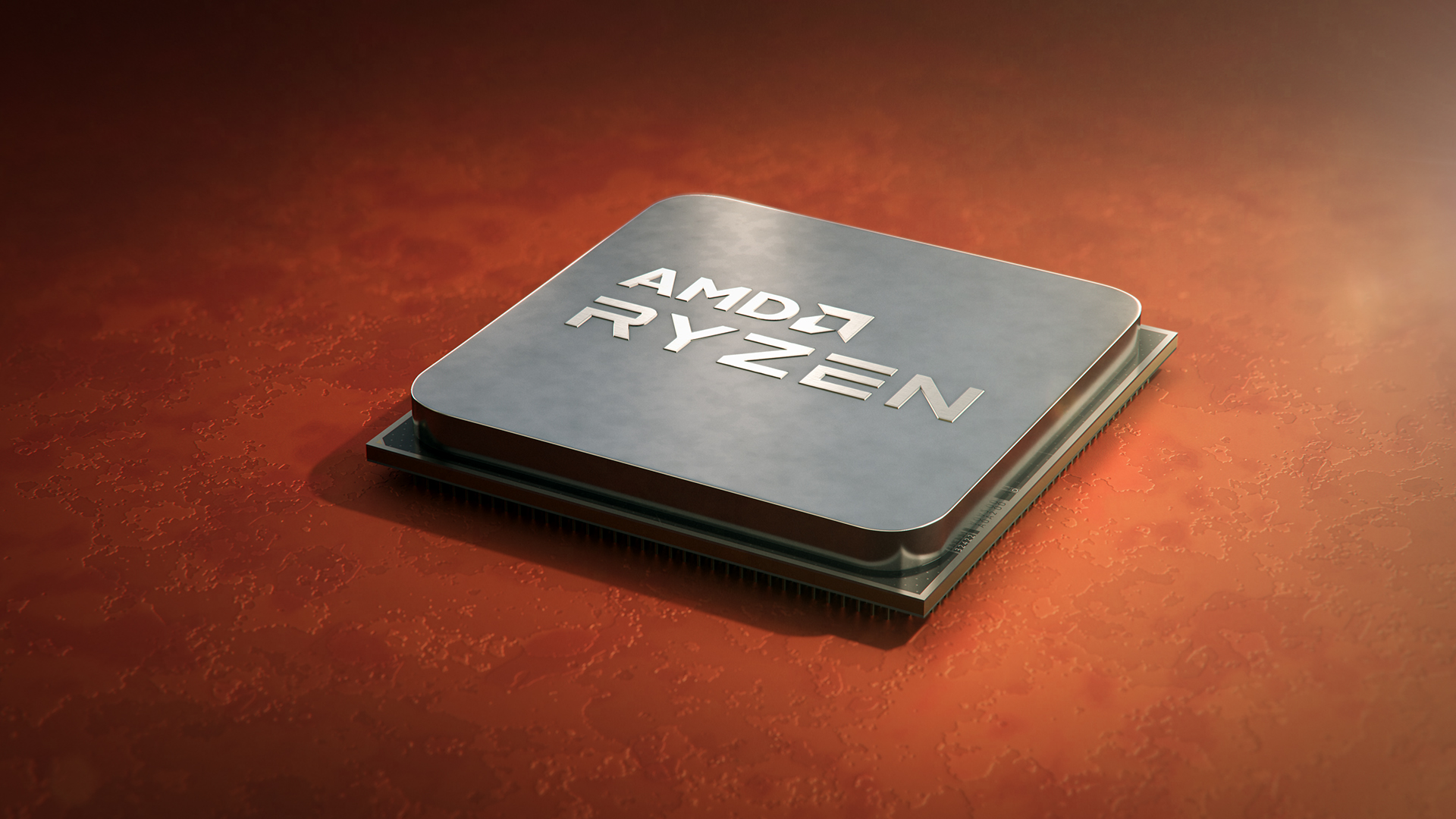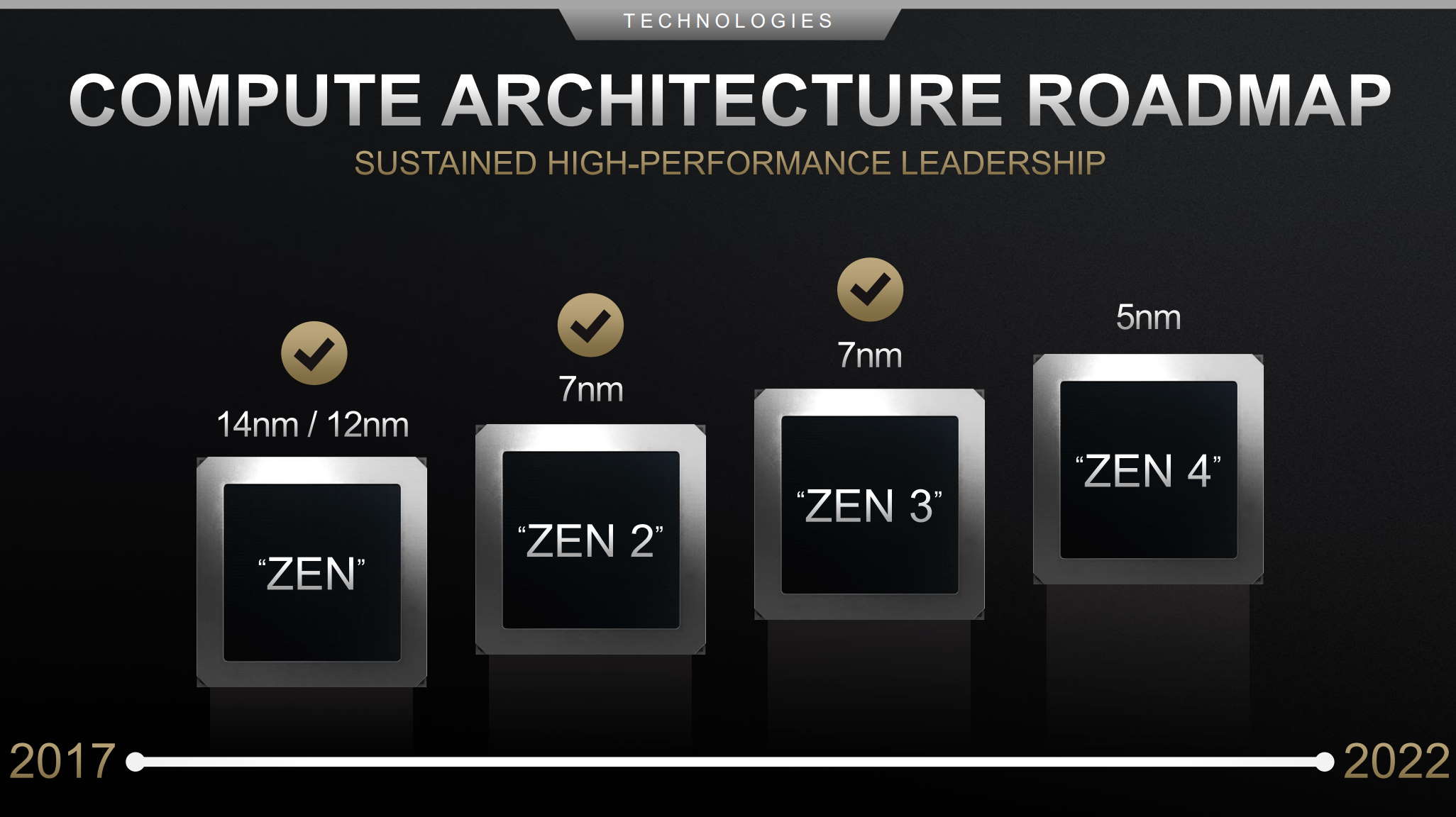Next-gen AMD Ryzen CPUs may not feature extra cores, but there's far more to Zen 4
There's plenty more going into next-gen Ryzen chips to get excited about.

AMD Zen 4 is an eagerly awaited CPU generation, not only because we're head over heels for Zen 3, but because we're receiving offcuts of information about AMD's next-gen that would make any PC builder salivate. Today, however, we're hearing news of what won't be changing with Zen 4, and that's the core count.
According to two well-known Twitter leakers, ExecutableFix and Patrick Schur, AMD Zen 4 consumer chips will feature up to 16 cores a piece. That's the same maximum core count as the Ryzen 9 5950X available today.
16 cores it is for Raphael 😇July 13, 2021
That would suggest that AMD's current eight-core CCX design isn't going anywhere with Zen 4, and the top consumer chip of the generation, assumedly named the Ryzen 9 6950X, will feature two eight-core chiplets under the hood. We've no official confirmation of the exact configuration yet, however.
That's still a whole lot of processing power to work with in a desktop chip—the 16-core Ryzen 9 5950X is no slouch. But if you need more power, there's AMD's HEDT offering, Threadripper, which is expected to receive a Zen 3 makeover sooner or later.
There's plenty more expected with Zen 4, though. AMD's own roadmaps confirm it will be primarily manufactured on a 5nm process node, almost certainly TSMC's, but further leaks suggest it could come with an overhauled I/O die, too.

Furthermore, AMD may finally switch from the AM4 socket to a new AM5 socket. This new socket could be an LGA design, too, meaning AMD processors would no longer come with an array of bendable rear pins.
Lastly, and alluded to by Patrick Schur, Zen 4 processors could run the gamut from 65W TDPs all the way up to 170W TDPs. For the record, the Ryzen 9 5950X operates within a 105W TDP. This would make for a huge increase in power consumption for the next generation's top chips, despite a more advanced process node in 5nm.
Keep up to date with the most important stories and the best deals, as picked by the PC Gamer team.
The exact TDP numbers for Raphael are 65, 95, 105, 120 and 170 W.July 14, 2021
What could be the explanation for all this? The working theory is that the inclusion of an RDNA 2 iGPU on-chip would be responsible for some of the increased power demand, although all manner of specification changes could see power consumption increase. Clock speeds, for one.

Best CPU for gaming: the top chips from Intel and AMD
Best graphics card: your perfect pixel-pusher awaits
Best SSD for gaming: get into the game ahead of the rest
Current AMD Ryzen desktop CPUs do not feature integrated graphics, though, unlike Intel's Core processors, and rumours of a potential iGPU with Raphael have been growing over the course of the year.
A 170W increase is massive, however, and leaks suggest this may be reserved for a chip that's something out of the ordinary. A 120W TDP may be more the norm for Zen 4 desktop processors.
Come what may, AMD has yet to disappoint with any of its Zen CPU generations, and so I'm expecting plenty to whet gamer's appetites with Zen 4. The company may also have a fight on its hands with Intel Alder Lake, incorporating a new and exciting architecture out of Chipzilla, and so it will need to be competing at its best to keep hold of the high-end CPU market it's oh so recently been able to lay claim to.
With a release date by the end of 2022, extrapolated from AMD's own roadmap, Zen 4 isn't actually all that far away. Pending any delays, of course, of which some may be possible with ongoing chipmaking shortages.
In the meantime, AMD recently stated that high-end chips featuring its 3D V-cache technology will go into production by the end of the year, so perhaps these will tide us over until Zen 4 arrives.

Jacob earned his first byline writing for his own tech blog. From there, he graduated to professionally breaking things as hardware writer at PCGamesN, and would go on to run the team as hardware editor. He joined PC Gamer's top staff as senior hardware editor before becoming managing editor of the hardware team, and you'll now find him reporting on the latest developments in the technology and gaming industries and testing the newest PC components.

